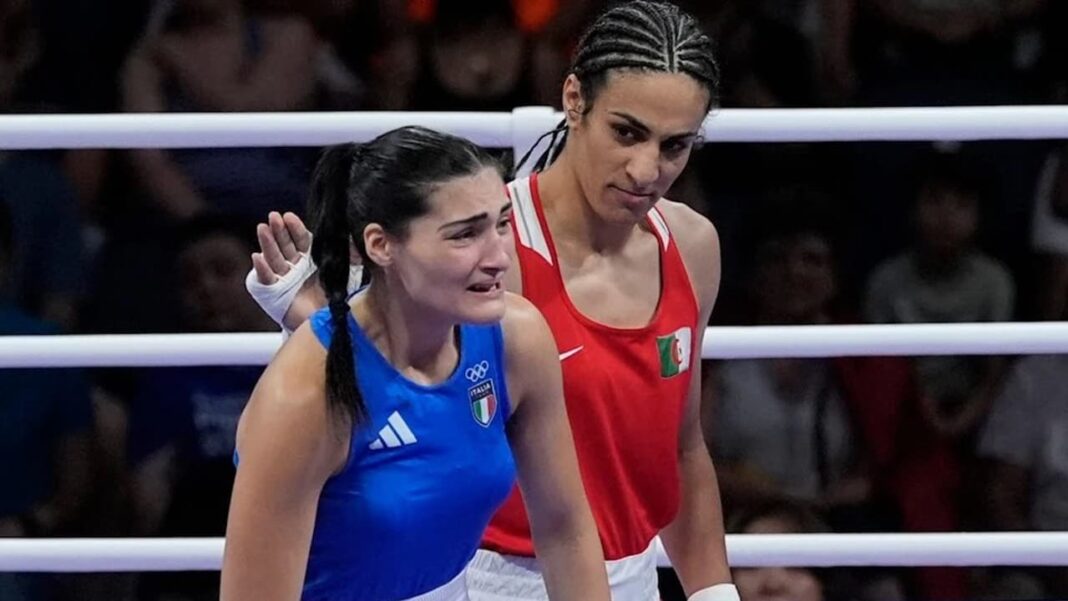Italian boxer Angela Carini’s abrupt exit from the 66 kg women’s boxing match against Algeria’s Imane Khelif on Thursday has sparked considerable controversy at the Paris Olympics. Khelif, previously banned from world championships due to testosterone and gender eligibility issues, secured a victory in just 46 seconds after Carini quit.
Carini’s unexpected withdrawal, a rare occurrence in Olympic boxing, left her visibly emotional as she declined to shake hands with Khelif post-match. According to ESPN, Carini explained in a post-match interview that severe nose pain led to her decision to stop the fight.
“I felt severe pain in my nose, and with the maturity of a boxer, I said ‘enough,’ because I didn’t want to, I did not want to, I could not finish the match,” Carini stated. “I am not here to judge or pass judgment. If an athlete is this way, and in that sense, it is not right or it is right, it is not up to me to decide. I just did my job as a boxer. I got into the ring and fought. I did it with my head held high and with a broken heart for not having finished the last kilometer,” she added.
Khelif’s presence at the Olympics comes after her disqualification from the International Boxing Association (IBA) Women’s Championships last year due to elevated testosterone levels. Despite this, the International Olympic Committee (IOC) task force, responsible for the last two Olympic boxing events due to IBA’s governance issues, allowed her to compete in Paris.
The IOC defended the participation of Khelif and Lin Yu-ting, another boxer under scrutiny for failing a biochemical eligibility test. Lin is set to compete against Uzbekistan’s Sitora Turdibekova in the 57kg event.
This year marks the first time Olympic boxing has achieved gender parity, with 124 men and women competing. IOC spokesperson Mark Adams emphasized that all female competitors comply with competition eligibility rules, stating, “They are women in their passports, and it is stated that this is the case that they are female.”
Several sports bodies, including World Aquatics, World Athletics, and the International Cycling Union, have revised their gender rules in recent years, generally banning athletes who have undergone male puberty from women’s events. However, the IOC’s eligibility decisions for these boxers were based on the rules from the 2016 Rio Olympics.
“What I would say is that this involves real people and we are talking about real people’s lives here,” Adams noted. “They have competed and they continue to compete in the women’s competition. They have lost and they have won against other women over the years.”
This development adds a layer of complexity to the ongoing discussions about gender and eligibility in sports, spotlighting the delicate balance between inclusivity and fair competition.

